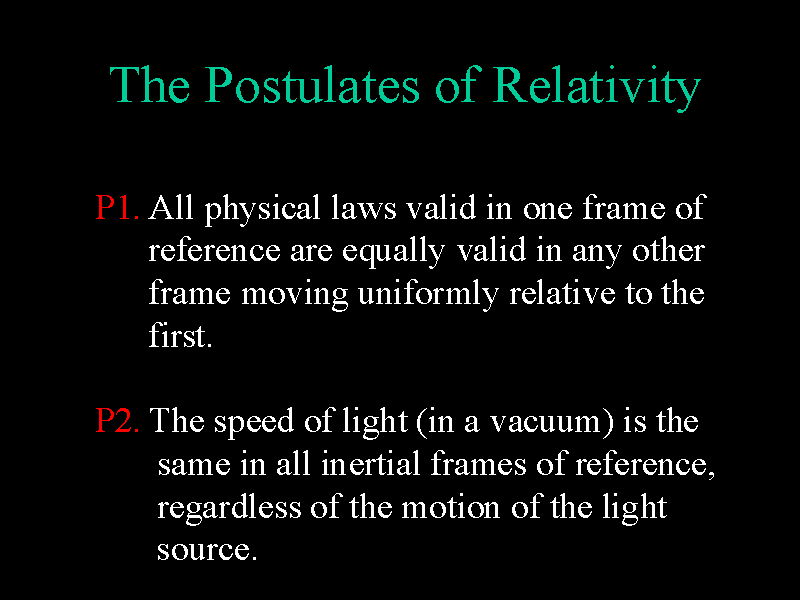Go Al go!
Every western science mind since before Newton had considered time and space to be constant. They also thought that a vacuum was impossible. We know better but Einstein started out just like his contemporaries.
1979 - Albert Einstein was born.
1887 - Michelson and Morley searched for and failed to detect the stationary ether that filled in for the "impossible" vacuum between celestial objects. They were stuck on the Aristotelian idea that "nature abhors a vacuum." The debate raged for two decades but their experiment eventually showed Einstein that the speed of light is constant no matter the speed of the source or receiver.
A failure that changed the world
1887-1904 - Fitzgerald, Lorentz, and others proposed equations that attempted to explain Michelson-Morley's experimental results within the constraints of the old ideas.
Equations to explain Michelson-Morley
while holding on to old ideas
1905 - Einstein, now 26, wrote several papers. His Theory of Relativity derived the Lorentz Transformations above using the two postulates below. It was just like Newton using his Universal Law of Gravity to derive Kepler's experimental Laws of Planetary Motion. Special Relativity was an elegant solution but was only innovative in that he reinterpreted the results of others' work.
Relativity has some fascinating conclusions:
- Light is the speed limit of the universe. Nothing with mass can travel that fast.
- Objects traveling near that speed limit experience time at a different rate.
- Anything near light speed acts as if it has more mass.
- Lengths contract near the speed of light.
- There is no stationary object in the universe so these effects happen from both perspectives.
The Lorentz equations above showed exactly what Einstein concluded but most scientists were unwilling to challenge certain assumptions underlying their understanding of the universe. Einstein was different. He abandoned the old.
Einstein took the path untraveled by other theoreticians and that has made all the difference. Michelson and Morley won the Nobel Prize in 1907 following Einstein's interpretation. Einstein won his only Nobel Prize in 1921 - not for relativity.
The scientific endeavor and Einstein's Relativity have an important lesson for all of us. Always remember that a simple change in perspective can revolutionize your life. Mrs. Domencic and I had a conversation about Transcendentalism and Science. Here's part of it.
Abandon Old Ideas - Science and History
Thanks, Hilary.

No comments:
Post a Comment